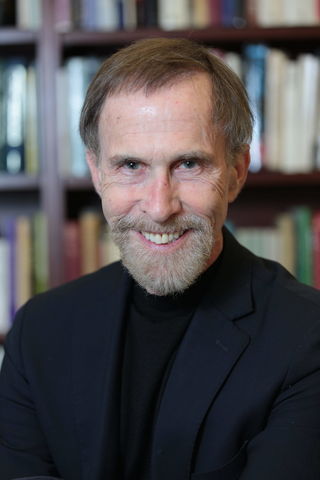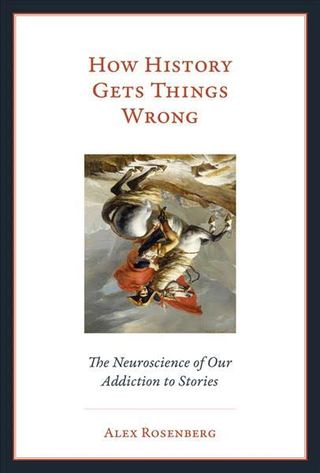Ethics and Morality
Disenchanted Naturalism
Alex Rosenberg discusses his views on Morality and his Disenchanted Naturalism
Posted March 20, 2020
This is part 3 of this interview: click here for part 2.
This is the fourth in a new series of posts on Science and Philosophy, featuring interviews with influential scientists and philosophers of science. Previous interviews featured Bas van Fraassen, Cailin O'Connor, and Massimo Pigliucci.

Alex Rosenberg is the R. Taylor Cole Professor of Philosophy at Duke University (with secondary appointments in the biology and political science departments). Alex has been a visiting professor at many universities, including Oxford University and more recently the Philosophy Department at the Research School of Social Science of the Australian National University and the University of Bristol. In 1993, Alex received the Lakatos Award in the philosophy of science, the most prestigious prize in the field. He's the author of more than a dozen academic books and a couple hundred papers.
Walter Veit: Richard Garner and Richard Joyce recently published an edited volume with the title The End of Morality: Taking Moral Abolitionism Seriously. Garner argues that we would all be "better off" without morality, a view many responded is incoherent. I'd imagine you hold sympathies for his view? If morality is the cause, rather than the solution for many problems humanity faces, such as wars, discrimination, and nationalism that are justified by moral thinking (perhaps because morality evolved in response to different sorts of problems), disenchanted naturalism might seem more attractive as a result.
Alex Rosenberg: It's not core morality that is the cause of our problem. It's the package that emerges from combining core morality with the batsh*t beliefs that most people have, about themselves, others, the circumstances people find themselves in, etc.
Veit: Philosophy is often sold as the discipline in which every belief is questioned. Nevertheless, you seem to have received much backlash from within the philosophical community on your "mad-dog naturalism." You write that naturalism:
"forces us to say no in response to many questions to which most everyone hopes the answer is yes. These are the questions about purpose in nature, the meaning of life, the grounds of morality, the significance of consciousness, the character of thought, the freedom of the will, the limits of human self-understanding, and the trajectory of human history."
Are philosophers immune to confirmation bias?
Rosenberg: I don’t suppose anyone is immune to confirmation bias… and I am equally sure I am sometimes inconsistent in the view I propound. But I don’t seem to have received “backlash” so much as stony silence. A few people have been outraged. Most philosophers seem indifferent to my disenchanted naturalism.
Veit: On this note. You recently published your book How History Gets Things Wrong: The Neuroscience of Our Addiction to Stories, in which you argue against the popular mantra that "Those who cannot remember the past are condemned to repeat it." What was your motivation for this book?

Rosenberg: How History Gets Things Wrong is a book about the implications of neuroscience for narrative. It shows how the theory of mind that drives our love for and satisfaction with stories, linking factual events in history, and non-factual ones in fiction, is a hardwired device we employ even though it reflects nothing about the nature of human cognition that actually drives behavior. Therefore all narratives that employ the theory of mind are wrong. That goes for historical explanations that identify the motives and purposes allegedly driving individual agents.
Veit: Could you elaborate on the theory of mind? Most readers of Psychology Today will not be familiar with the term.
Alex Rosenberg: ... Click here for part 4.
***
This is part 3 of this interview: click here for part 1 and here for part 2.
You can follow the author on Facebook, Instagram, medium, or Twitter to receive the latest updates.
References
Rosenberg, A. (2013). Disenchanted naturalism. In Contemporary philosophical naturalism and its implications (pp. 27-46). Routledge.
Joyce, R., & Garner, R. (Eds.). (2018). The end of morality: Taking moral abolitionism seriously. Routledge.


